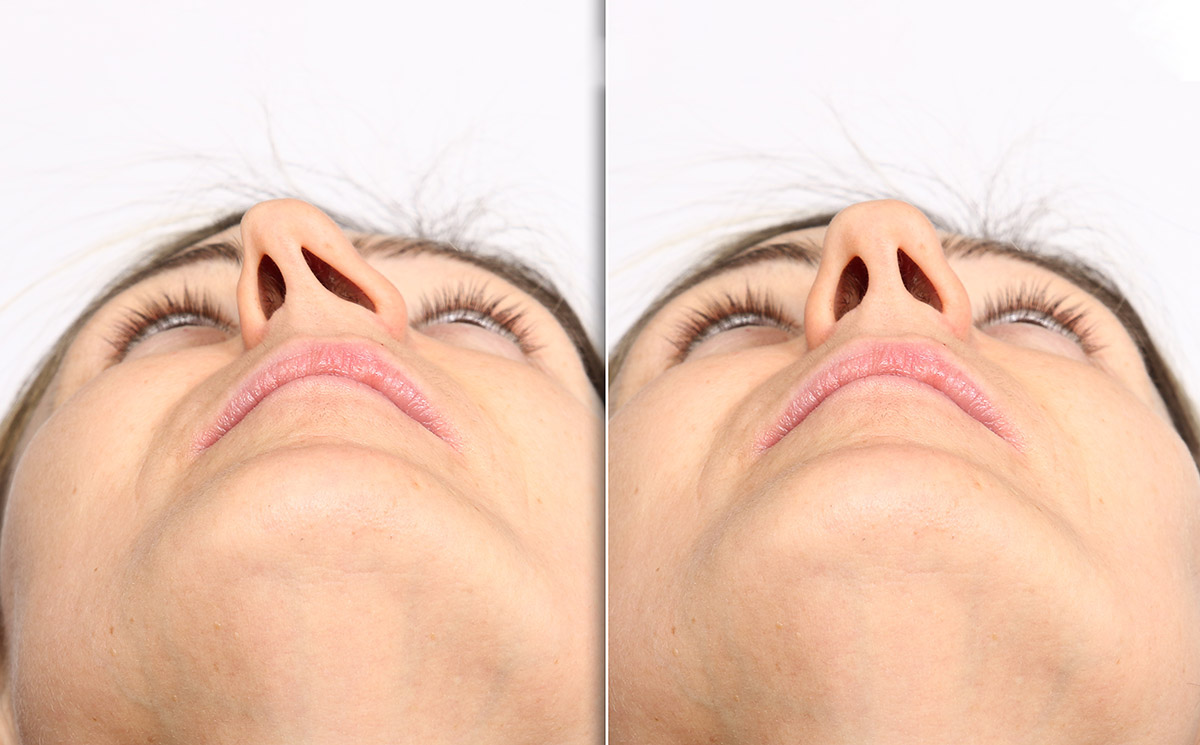
What is a Deviated Septum?
A septum in a deviated septum is the nasal septum or cartilage that divides the inside of your nose into the left and right chambers.
When the septum deviates from its midline, it causes congestion and difficulty breathing in the smaller chamber. It also causes drying, crusting, or bleeding in the larger chamber.
Common Causes of Deviated Septum
Most people have deviated septums that cause no to minor symptoms. However, there are causes of deviated septums that can cause significant symptoms. The following causes are:
Congenital
The deviated septum can have developmental causes. It can occur at birth due to genetic factors such as hereditary connective tissue diseases.
Nose Injury
The deviated septum can also come from traumatic causes. An injury can cause the nasal septum to be displaced to either side. It can happen due to falls, fights, contact sports, automobile incidents, or rough playing. Nasal injuries can also occur in babies due to difficult childbirth.
Aging
A deviated septum is a common condition. As a person grows, the nasal septum can grow to one side than the other.
Recognizing Deviated Septum Symptoms
A deviated septum can have severe symptoms affecting a person’s everyday life.
The wider chamber of the nose, caused by a deviated septum, is more exposed to air. This exposure can lead to nasal drying, leading to nose bleeds.
The more constricted chamber, caused by a deviated septum, can result in nasal congestion. The following complications occur with nasal congestion:
- Recurring sinus infections or sinusitis
- Sinus pressure
- Headaches
- Face pain
- Noisy breathing
- Snoring
- Sleep apnea or difficulty breathing during sleep
- Difficulty breathing
- Difficulty breathing can lead to chronic mouth breathing
- Chronic mouth breathing can lead to a dry mouth
When Should You See a Doctor?
If your symptoms above do not respond to home remedies or over-the-counter medication, you may want to see a doctor to be healthier and live more comfortably. Furthermore, symptoms such as chronic nasal congestion, recurring sinus infections, and frequent nosebleeds require medical consultation.
Diagnosing a Deviated Septum
To diagnose if a person has a deviated septum, your healthcare provider will review your medical history and do a physical examination. If further examination is needed, they may do the following procedures:
Nasal Endoscopy
First, they apply a decongestant spray with lidocaine to prepare your nasal cavity. Lidocaine helps the patient’s comfort with its numbing properties alongside topical anesthesia.
Then, they will use an extended tube scope attached with a bright light and a small camera to look inside. The tube would be connected to a monitor screen.
At the end of the procedure, they will remove the tube and apply a decongestant spray to the nasal cavity again.
CT Scan
If needed, your healthcare provider may recommend a CT scan of the nose. The imaging test can determine the seriousness of the deviated septum and the severity of the symptoms.
After the diagnosis, you may be referred to a sinus surgeon or an ENT specialist.
How Sinus Surgery Can Help Correct a Deviated Septum
If medical therapy does not alleviate the symptoms you’re experiencing, surgery to correct the deviated septum can be recommended.
Septoplasty involves repositioning and aligning the nasal septum to the center of the nose. With nasal septum correction, the patient can benefit by having proper airflow inside the nasal cavity to alleviate symptoms.
Depending on the severity of the condition, the surgery can be an outpatient or inpatient procedure that lasts 1-2 hours. In some cases, a surgeon may recommend sinus surgery to minimize sinus infections or rhinoplasty to reshape the nose.
Expert Care and Surgical Solutions at Puget Sound Sinus Center
If you are experiencing chronic sinus disease or nasal obstruction, your healthcare provider may refer you to a sinus surgeon. As the only Fellowship-trained Rhinologist and Endoscopic Skull Base Surgeon worldwide, Amy Anstead, MD, FARS, provides surgical solutions and state-of-the-art techniques to alleviate severe symptoms people experience from deviated septums.
At Puget Sound Sinus Center, we aim to provide personalized, holistic, patient-centered care for maximum comfort and healing.
A deviated septum can cause a domino effect of symptoms that can interfere with your breathing, sleeping, and health. Having performed thousands of successful complex sinus surgeries, Dr. Anstead has treated patients to a better quality of life around the globe. If you’d like to learn more about deviated septums or other sino-nasal surgeries, click the link below!